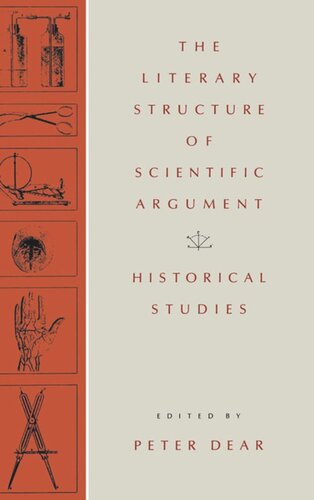

Most ebook files are in PDF format, so you can easily read them using various software such as Foxit Reader or directly on the Google Chrome browser.
Some ebook files are released by publishers in other formats such as .awz, .mobi, .epub, .fb2, etc. You may need to install specific software to read these formats on mobile/PC, such as Calibre.
Please read the tutorial at this link: https://ebookbell.com/faq
We offer FREE conversion to the popular formats you request; however, this may take some time. Therefore, right after payment, please email us, and we will try to provide the service as quickly as possible.
For some exceptional file formats or broken links (if any), please refrain from opening any disputes. Instead, email us first, and we will try to assist within a maximum of 6 hours.
EbookBell Team

5.0
78 reviewsIn this volume, seven historians of science examine the historical creation and meaning of a range of scientific textual forms from the seventeenth to the late nineteenth centuries. They consider examples from the fields of chemistry, medicine, physics, zoology, physiology, and mathematics, exposing the rich possibilities for a new, historically rooted approach to our scientific cultural heritage.
Peter Dear presents the case for "taking texts seriously"—asking historians of science to confront issues and techniques moving to the forefront in a number of disciplines, and asking literary scholars and literary-minded intellectual historians not to "put science quietly to one side," or treat it as a mere source of cultural metaphors, but to understand it in terms of historically specific textual construction.
The Literary Structure of Scientific Argument will interest historians, philosophers, and sociologists, as well as literary scholars concerned with science.